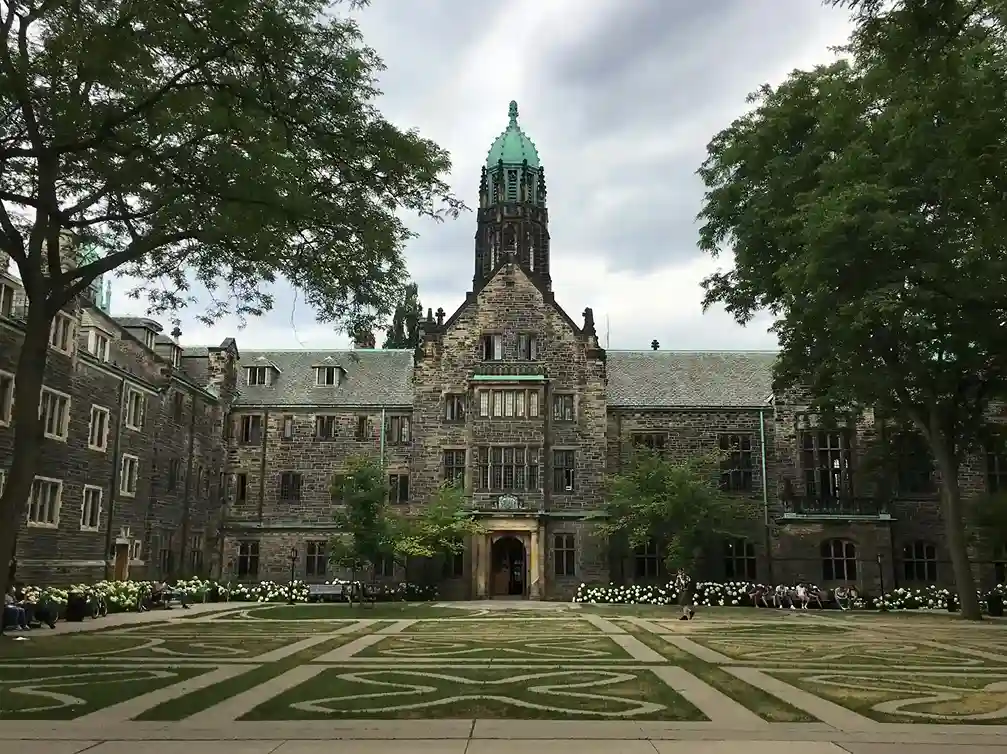Canada ranks among the top study abroad destinations for pursuing a master’s degree. A master’s degree in Canada offers international students the opportunity to gain excellent academic and professional opportunities due to a world-class education system, high-ranked universities and diverse cultural experiences.
Key highlights:
- Why Pursue a Master’s Degree in Canada?
- What is a Canadian Master’s Degree?
- Top Universities in Canada for Master’s 2025
- Master’s Degree Requirements in Canada: Eligibility and Documents
- Master’s Degree Fees in Canada
- Career Scope After a Master’s in Canada
Why Pursue a Master’s Degree in Canada?
World-Class Education
Canada is home to world-class universities with research-oriented programmes and global recognition. Expert faculty members, who are industry leaders, provide students with proper guidance, valuable insights, and dedicated mentorship throughout their academic journey.
Research and Innovation
Canada’s investment in research and innovation gives master’s students access to advanced technologies and projects, helping them gain practical experience, enhance research skills, and foster creativity and intellectual curiosity.

Work Opportunities for Students
- Work While Studying: Students are allowed to work off-campus for up to 24 hours per week.
- Post-Graduation Work Permit (PGWP): PGWP allows you to gain valuable Canadian work experience after you complete your studies from a PGWP-eligible Designated Learning Institution (DLI). You can apply for a 3-year PGWP as long as your master’s programme is at least 8 months long.
Quality of Life
Canada offers exceptional living standards to students through safe cities, robust healthcare, excellent infrastructure, and welcoming communities.
What is a Canadian Master’s Degree?
A master’s degree in Canada typically takes 1 to 2 years to complete and is offered as a professional or academic programme for higher education. It can be a course-based programme, a thesis-based programme, or a combination, depending on the university.
Top Universities in Canada for a Master’s Degree in 2025
Here are the Quacquarelli Symonds (QS) World University Rankings and Times Higher Education (THE) World University Rankings for the top universities in Canada for master’s degrees.
- QS category: QS World University Rankings 2025: Top global universities (Canada-specific)
- THE category: World University Rankings 2025 (Canada-specific)
| Universities | QS Rankings 2025 | THE Rankings 2025 |
|---|---|---|
| University of Toronto | 1 | 1 |
| McGill University | 2 | 3 |
| University of British Columbia | 3 | 2 |
| University of Alberta | 4 | 5 |
| University of Waterloo | 5 | 7 |
| Western University | 6 | 10 |
| Université de Montréal | 7 | 6 |
| McMaster University | 8 | 4 |
| University of Ottawa | 9 | 8 |
| Queen’s University at Kingston | 10 | 13 |
Master’s Degree Requirements in Canada: Eligibility and Documents
Eligibility
Bachelor’s Degree
Most universities require 16 years of education, including a 4-year bachelor’s degree from a recognised university. However, some universities may accept a 3-year bachelor’s degree. Admission may also depend on course-specific Cumulative Grade Point Average (CGPA) criteria.
Professional Experience
Professional experience, though not always tied to academics, is often a key admission factor. For instance, many Canadian MBA programmes require 2–3 years of relevant work experience.
Documents Required
- Formal education with a minimum score required
- Academic or professional experience
- Bachelor’s degree with required CGPA
- English language proficiency tests such as the International English Language Testing System (IELTS), Test of English as a Foreign Language (TOEFL), etc.
- The Graduate Record Examination (GRE) or the Graduate Management Admission Test (GMAT) score
- Latest resume
- Statement of Purpose (SOP)
- Letters of Recommendations (LORs)
- Admission essays
Master’s Degree Fees in Canada
The cost of a master’s degree in Canada for Indian students varies depending on the university and programme. Here is an estimation of fees for popular master’s programmes at top universities in Canada.
| University | Degree | Tuition Fees (CAD) |
|---|---|---|
| University of British Columbia (UBC) |
|
~26,000 (Per instalment) (3 instalments/year) |
| McGill University |
|
~72,000 (Total cost) |
| University of Waterloo |
|
~73,000 (First year) |
| Queen’s University |
|
~15,000 (Total cost) |
Also Read: Thinking of Studying in Canada? Career Opportunities for Students
Career Scope After a Master’s in Canada
After earning a master’s degree in Canada, graduates can have access to a wide range of career opportunities.
Some popular job profiles to pursue in Canada include:
- Project Manager
- Data Scientist
- Business Analyst
- Marketing Manager
- Human Resources Manager
- Software Engineer
- Financial Analyst
- Healthcare Administrator
- Research Scientist
- Environmental Consultant
A master’s in Canada opens doors to global opportunities, with degrees recognised for their academic excellence worldwide. While Canada is a great destination for pursuing a master’s degree, tuition and other expenses are important aspects to consider. At Avanse Financial Services, we ensure that students achieve their academic dreams independently.
We offer customized education loans designed to cover tuition fees, living expenses, travel costs, and more. Our study loan for abroad provides 100% financing with quick sanctions and flexible repayment options. Students can also use our education loan calculator to plan their EMIs diligently. Contact us with all your loan queries and take the step forward to fulfil your academic dreams.











